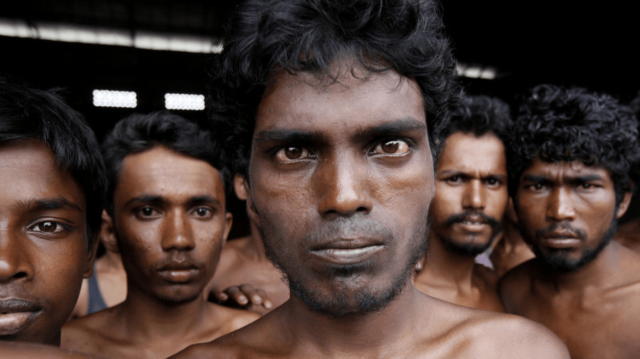“Who are the Rohingyas”? I believe who they are and what they’re facing in Myanmar must precede the discussion as to why they mustn’t be given citizenship in a country that prides itself on its humanitarian outlook towards refugees in crisis. It always has!
Well the Rohingyas, the majority of whom are Muslims, have been described by the United Nations as one of the most persecuted minorities in the world. They are currently bearing the brunt of a systemic ethnic cleansing that’s going on inside the Buddhish-majority Myanmar at the hands of the army…in an apparent “state-sponsored” act of persecution. Thus, in order to escape the persecution, these Rohingya Muslims (totalling closer to 1 million plus) have been forced to migrate to neighbouring countries, like Bangladesh and India.

The recent controversy comes in the wake of the MHA’s move to deport the 40,000 Rohinyas who fled to India during the violence in 2012…a move that has received much criticism from the United Nations and was challenged by two Rohingya Muslims in the apex court…which will conduct its next hearing on October 3, 2017.
You see, in its quick attempt to criticize the government’s move to ban Rohingyas from the Indian territory, there is much that people have not stopped to ponder, which is what the present article aims to do…to simply ponder!
First of all, India has always been open and welcoming to all asylum seekers. Thus, since independence, India has always followed a very liberal refugee policy, even though we are not a party to the United Nations 1951 Convention or its 1967 protocol. Thus, to criticise us as a nation that is unwilling to play host to those persecuted is completely unfounded. Especially, when we have always come to the aid of our neighbours when they have needed us the most. Even now, we have been sending aids and supplies to Bangladesh in order to provide for the Rohingya refugees.
However, there is much that people are forgetting in the process. Even the 1951 UN Convention on refugees does not say that one needs to blindly accept all refugees fleeing to one’s country. Any country has the right to refuse those refugees that they have serious reasons to believe that they have committed crimes against humanity and/or political and non-political crimes. The UN 1951 convention does not state that countries must overlook their national security in order to play hosts to all refugees, which is why the countries need to apply their minds when dealing with such situations.
Thus, taking the present case of Rohingya Muslims, the Centre has submitted in the Supreme Court that intelligence agencies and other reliable sources have found links between the Rohingya Muslims with both the ISI and the ISIS, which makes them a grave threat to India’s national security. And it is in this light that India has decided to deport the refugees…not because it lacks compassion.
While there are those who say that the government is wrong in its submission to the Supreme Court, I somehow do not share their sentiment. After all, why would the government deliberately commit “perjury” before the Supreme Court, which by the way is a punishable offence. Thus, if the Rohingya’s present a potential national security threat, India must not succumb to international opinions. National security, in the end, trumps the ‘welcome mat’!































